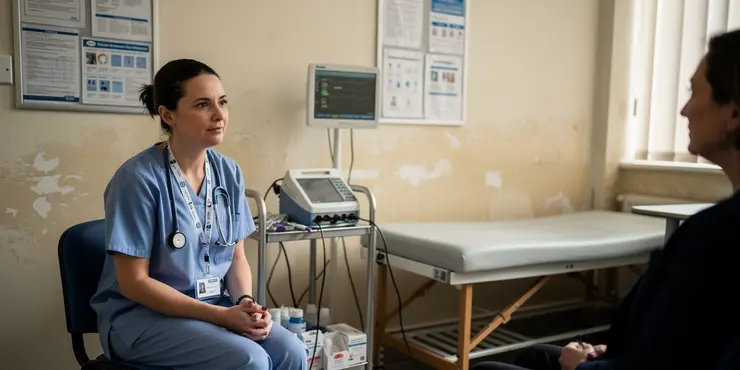
Find Help
More Items From Ergsy search
-
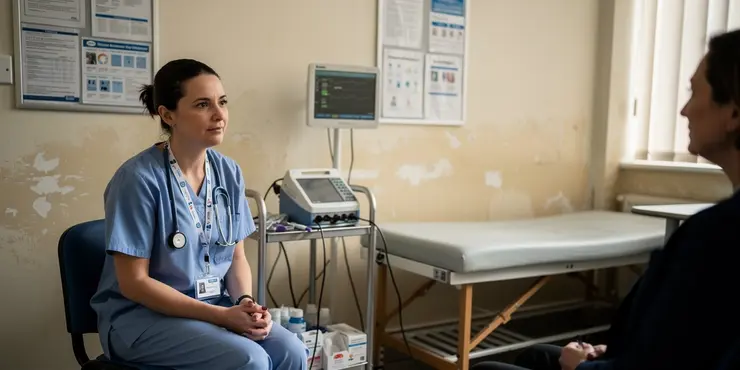
What is the prognosis for viral meningitis?
Relevance: 100%
-
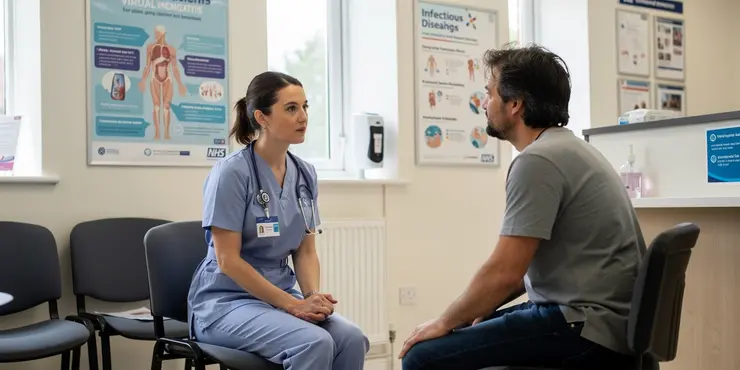
What causes viral meningitis?
Relevance: 68%
-
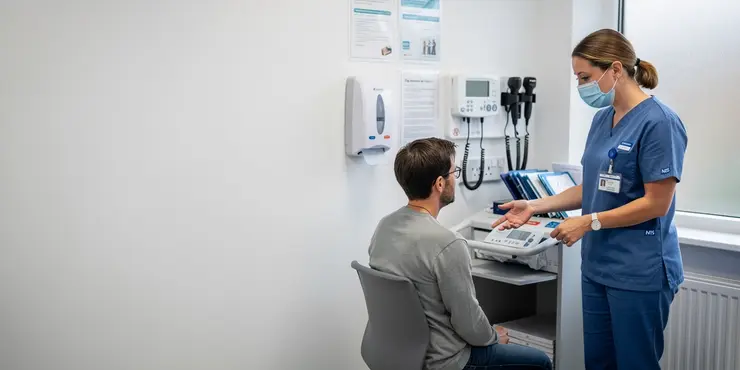
How is viral meningitis spread?
Relevance: 68%
-

What is meningitis?
Relevance: 51%
-

What are the main types of meningitis?
Relevance: 50%
-
Is meningitis contagious?
Relevance: 48%
-

How is meningitis diagnosed?
Relevance: 46%
-

Why is meningitis a medical emergency?
Relevance: 44%
-

What are common symptoms of meningitis?
Relevance: 41%
-

What is non-infectious meningitis?
Relevance: 41%
-
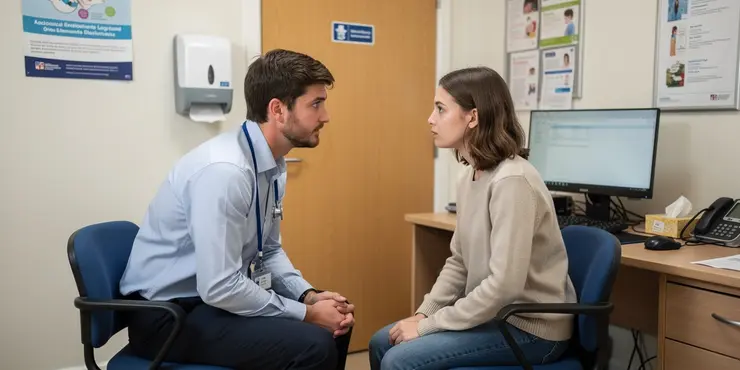
Can meningitis cause long-term complications?
Relevance: 41%
-

How serious is bacterial meningitis?
Relevance: 40%
-

Can meningitis be prevented?
Relevance: 39%
-

What is the treatment for bacterial meningitis?
Relevance: 39%
-

What are the signs of meningitis in infants?
Relevance: 38%
-

What causes bacterial meningitis?
Relevance: 37%
-

What is the prognosis for someone with CFS?
Relevance: 37%
-
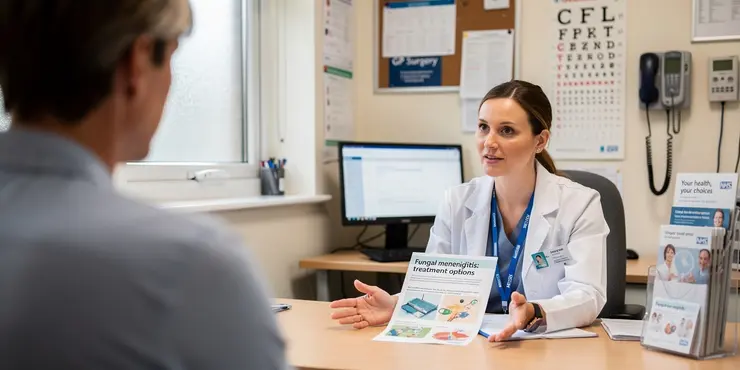
How is fungal meningitis treated?
Relevance: 36%
-

Are there vaccines for meningitis?
Relevance: 36%
-

Does the CDC recommend meningitis vaccines for adolescents?
Relevance: 36%
-

Should health care workers get the meningitis vaccine?
Relevance: 36%
-

What is the prognosis for someone with heart failure?
Relevance: 35%
-

Is vaccination recommended for seniors against meningitis?
Relevance: 35%
-

Who should get a meningitis vaccination?
Relevance: 35%
-

Do people who have had meningitis in the past need to be vaccinated?
Relevance: 35%
-

Is meningitis vaccination required for military recruits?
Relevance: 35%
-

Who is at higher risk of contracting meningitis?
Relevance: 34%
-

Are there any specific groups that should prioritize meningitis vaccination?
Relevance: 34%
-

Are adults over 25 recommended for meningitis vaccination?
Relevance: 33%
-
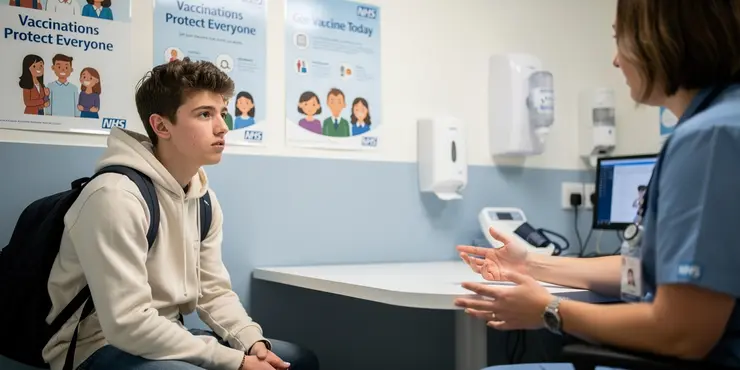
Should college students get the meningitis vaccine?
Relevance: 33%
-

Do antibiotics work on viral infections?
Relevance: 32%
-

What does an undetectable viral load mean?
Relevance: 31%
-

What are the guidelines for meningitis vaccination for HIV-infected individuals?
Relevance: 31%
-

Do international students need the meningitis vaccine?
Relevance: 31%
-
What are the meningitis vaccination recommendations for travelers to Hajj or Umrah?
Relevance: 29%
-
What is the prognosis for individuals with mitochondrial disease?
Relevance: 19%
-

Who is recommended to receive the meningitis vaccination?
Relevance: 14%
-
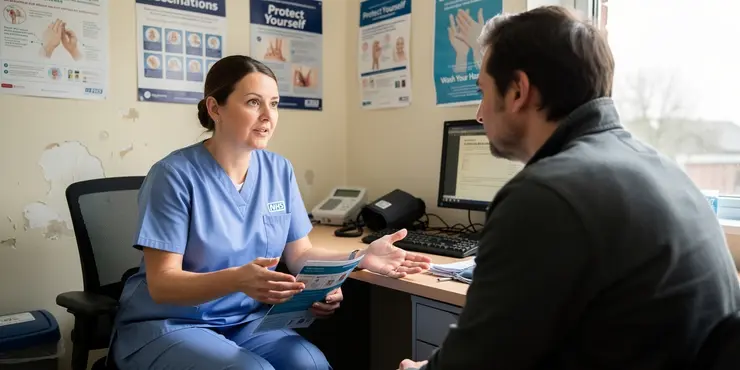
Should travelers consider getting a meningitis vaccine?
Relevance: 13%
-

At what age should children receive the meningococcal vaccine?
Relevance: 12%
-
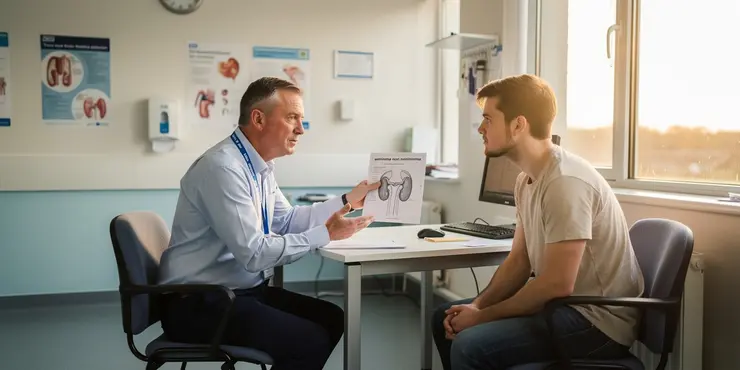
What's the difference between seminomas and non-seminomas?
Relevance: 12%
What is Viral Meningitis?
Viral meningitis is an infection characterized by the inflammation of the protective membranes covering the brain and spinal cord, known as the meninges. It is caused by viruses such as enteroviruses, herpes simplex virus, and others. Although it shares similarities in symptoms with bacterial meningitis, viral meningitis is usually less severe.
Symptoms and Diagnosis
Common symptoms of viral meningitis include headache, fever, neck stiffness, and sensitivity to light. Some patients may also experience nausea, vomiting, and a general feeling of malaise. These symptoms can be alarming, but they are typically milder and develop over a more protracted period compared to bacterial meningitis.
Diagnosis is usually made through clinical evaluation and lumbar puncture, where cerebrospinal fluid (CSF) is tested for the presence of viral indicators. Blood tests, imaging, and other diagnostic tests may also be employed to rule out bacterial causes.
Treatment
Unlike bacterial meningitis, which requires urgent antibiotic treatment, viral meningitis often resolves on its own without specific antiviral treatment, particularly in cases caused by enteroviruses. Treatment usually involves supportive care. Patients are advised to get plenty of rest, keep hydrated, and manage symptoms such as headache and fever with over-the-counter pain relievers like paracetamol or ibuprofen.
Antiviral medications may be prescribed if the infection is caused by specific viruses, such as herpes simplex virus, although this is less common. Hospitalization is rare but may be necessary for severe cases or when symptoms do not improve at home.
Prognosis
The prognosis for viral meningitis is generally excellent, especially compared to bacterial meningitis. Most individuals recover completely without any long-term effects. Recovery times can vary, with some people feeling better within a week, while others may take a few weeks to fully recover.
Complications are uncommon, but in rare instances, individuals may experience prolonged fatigue, headaches, or difficulty concentrating, which can persist for several weeks after the acute illness has resolved. These post-meningitis symptoms generally improve with time.
Prevention
Preventative measures focus on reducing the risk of viral infections that can lead to viral meningitis. This includes practicing good hygiene, such as regular hand washing, avoiding close contact with those who are ill, and covering the mouth and nose when coughing or sneezing. Vaccinations are available and recommended for some viruses that can cause meningitis, such as mumps and measles.
Overall, while viral meningitis can be frightening due to its symptoms and initial presentation, the prognosis is overwhelmingly positive, and most people make a full recovery with no lasting effects.
What is Viral Meningitis?
Viral meningitis is when the thin layers around the brain and spine get swollen because of a virus. These layers are called the meninges. Viruses like enteroviruses or herpes can cause this illness. Viral meningitis can look a bit like bacterial meningitis, but it is usually not as bad.
Symptoms and Diagnosis
If you have viral meningitis, you might get a headache, a fever, a stiff neck, and not like bright lights. You might also feel sick, throw up, or feel very tired. These signs can be scary, but they are usually not as strong as in bacterial meningitis and start more slowly.
To find out if someone has viral meningitis, doctors will check them over and might do a special test called a lumbar puncture. This test looks at the liquid around the brain and spine for signs of a virus. Sometimes, doctors also use blood tests or pictures of the brain to make sure it's not caused by bacteria.
Treatment
Viral meningitis usually gets better on its own. Unlike bacterial meningitis, it doesn’t often need special medicine. People should rest a lot, drink water, and take medicine like paracetamol or ibuprofen to help with headaches or fever. Sometimes, if a certain virus like herpes causes it, doctors might give antiviral medicine. Going to the hospital is rare unless it's really bad or not getting better at home.
Prognosis
Most people with viral meningitis get better completely. It’s much better than having bacterial meningitis. Some people feel better in about a week, but others might take longer, maybe a few weeks, to feel all better.
Problems after getting better are unusual, but some people might feel very tired, have headaches, or find it hard to focus for a few weeks after they are over the main illness. These problems usually go away over time.
Prevention
To help prevent viral meningitis, you should try not to catch the viruses that can cause it. This means washing your hands well, staying away from people who are sick, and covering your mouth and nose when you cough or sneeze. There are vaccines for some viruses like mumps and measles that can help prevent meningitis.
Viral meningitis might seem scary because of how it makes you feel at first, but most people get better completely and don't have lasting problems.
Frequently Asked Questions
What is viral meningitis?
Viral meningitis is an inflammation of the protective membranes covering the brain and spinal cord, known as the meninges, caused by viral infection.
What causes viral meningitis?
Viral meningitis is most commonly caused by enteroviruses, but other viruses such as herpes simplex, varicella-zoster, mumps, measles, and influenza can also cause it.
What are the symptoms of viral meningitis?
Symptoms include fever, headache, stiff neck, sensitivity to light, sleepiness, nausea, and in some cases, seizures.
How is viral meningitis diagnosed?
Diagnosis is often confirmed through a lumbar puncture to analyze cerebrospinal fluid and additional tests to identify the virus.
What is the typical prognosis for viral meningitis?
Most people recover completely from viral meningitis within 7 to 10 days, though some symptoms like headaches and fatigue may persist longer.
Is viral meningitis life-threatening?
Viral meningitis is typically less severe than bacterial meningitis and is rarely life-threatening.
Can viral meningitis cause long-term complications?
Most individuals recover without long-term complications, but in rare cases, issues like memory loss and balance problems may occur.
How is viral meningitis treated?
There is no specific treatment for viral meningitis, but supportive care, including rest, hydration, and pain management, is provided.
What are some risk factors for viral meningitis?
Risk factors include weakened immune systems, age (more common in children), and exposure to infected individuals.
Can viral meningitis be prevented?
Good hygiene practices, avoiding contact with infected individuals, and vaccinations for certain viruses can reduce the risk of viral meningitis.
How long is the recovery period for viral meningitis?
Recovery usually takes 7 to 10 days, although some people might feel fatigued for several weeks afterward.
Who is most at risk for severe cases of viral meningitis?
Infants, older adults, and individuals with weakened immune systems are more at risk for severe cases and complications.
What are the common enteroviruses that cause viral meningitis?
Common enteroviruses include Coxsackie and Echoviruses, which account for a significant number of cases.
Are antiviral medications effective for viral meningitis?
Antivirals are ineffective for most viral causes, except for herpes simplex virus, where specific treatment can be beneficial.
What role do vaccinations play in preventing viral meningitis?
Vaccinations for measles, mumps, rubella, and varicella can prevent infections that might lead to viral meningitis.
Can viral meningitis recur?
It is rare, but possible, for viral meningitis to recur, particularly if an individual is reinfected with another virus.
How does viral meningitis differ from bacterial meningitis in prognosis?
Viral meningitis typically has a better prognosis compared to bacterial meningitis, which can be life-threatening and may require antibiotics.
What are the early signs that might indicate a case of viral meningitis?
Early signs include fever, headache, neck stiffness, and sensitivity to light, similar to flu symptoms.
Is hospitalization required for viral meningitis?
Hospitalization is not usually required unless the case is severe or the patient has underlying health conditions.
What should one do if they suspect they have viral meningitis?
Seek medical attention for evaluation and to rule out bacterial meningitis, which needs prompt treatment.
What is viral meningitis?
Viral meningitis is an illness that makes the covering of the brain and spine swell. This covering is called the "meninges." It is caused by a virus, which is a tiny germ that can make you sick.
Supportive tools: You can ask a grown-up or a teacher to explain more if you have questions. Looking at pictures or videos about the brain and spine can also help you understand better.
Viral meningitis is when the layers that protect your brain and spine get swollen because of a virus.
What makes you get viral meningitis?
Viral meningitis is an illness caused by viruses. The most common ones are called enteroviruses. Other viruses that can cause it include herpes, chickenpox, mumps, measles, and the flu.
To make reading easier, you can:
- Read out loud.
- Use a finger or pen to guide you through the words.
- Take breaks if you feel tired.
- Ask someone to help explain any tricky words.
What signs show someone has viral meningitis?
Viral meningitis is an illness. It affects the covering of the brain and spinal cord.
Look for these signs:
- Headache: Head hurts a lot.
- Fever: Feeling very hot.
- Neck Pain: Neck feels stiff and sore.
- Tiredness: Feeling very sleepy or weak.
- Nausea: Feeling like you might be sick.
- Light Sensitivity: Bright light hurts the eyes.
These signs might show up quickly. It is important to tell a grown-up or a doctor if someone feels this way.
Support tools:
- Talk to a doctor or a nurse to understand more.
- Use picture cards to explain feelings and symptoms.
- Ask an adult for help.
Signs you might be sick are:
- Feeling very hot (fever)
- Head hurts (headache)
- Neck feels stiff
- Bright lights hurt your eyes
- Feeling very tired
- Feeling like you might be sick (nausea)
- In some cases, having fits (seizures)
If this is hard to read, try using text-to-speech tools or ask someone to help read it out loud to you.
How do doctors find out if someone has viral meningitis?
The doctor checks for the illness by doing a special back test to look at the fluid around the spine. They also do other tests to find the virus.
What usually happens if you have viral meningitis?
Most people get better from viral meningitis in 7 to 10 days. But some people may still have headaches and feel tired for a bit longer.
Can viral meningitis be very dangerous?
Viral meningitis is usually not as bad as bacterial meningitis. It almost never causes death.
Can viral meningitis cause problems for a long time?
Most people get better without any big problems later. But sometimes, people might have trouble remembering things or have balance problems.
How do doctors treat viral meningitis?
Doctors help people feel better if they have viral meningitis.
Here are some things that can help:
- Rest: Sleep lots to help the body heal.
- Fluids: Drink water or juice to stay strong.
- Pain relievers: Medicine like paracetamol can help with headaches or sore muscles.
If you feel very sick, or if you are not getting better, see a doctor.
Ask someone you trust to help read and understand this information. Using picture cards or a video with a helper can also be useful.
There is no special medicine for viral meningitis. But you can feel better with lots of rest, drinking water, and taking medicine if you have pain.
What can make someone more likely to get viral meningitis?
Some things can make it easier to get sick. These are:
- A weak immune system (this is what helps your body fight germs).
- Being young (kids get sick more often).
- Being around people who are already sick.
Can you stop getting viral meningitis?
To stop getting viral meningitis, keep clean, stay away from sick people, and get shots for some viruses.
How long does it take to get better from viral meningitis?
Getting better from viral meningitis usually takes a couple of weeks.
If you feel unwell, here are some things that can help:
- Rest a lot.
- Drink plenty of water.
- Ask someone to help you if you need it.
- You can also talk to a doctor or nurse about how you feel.
Getting better usually takes 7 to 10 days. Some people might feel very tired for a few weeks after.
Who can get very sick from viral meningitis?
Some people can get very sick from viral meningitis. These people might need extra care.
Here are some people who can get very sick:
- Babies
- Older adults
- People with weak bodies
Tools to help understand:
- Use simple pictures to learn about viral meningitis.
- Ask someone to explain it if it's hard.
- Use apps or videos that talk about health.
Babies, older people, and people who get sick easily can get very sick and have problems more often.
It might help to use pictures or simple words to understand better.
Which germs can cause viral meningitis?
Some germs called enteroviruses can make people sick with viral meningitis. These are:
- Germ 1: Coxsackievirus
- Germ 2: Echovirus
- Germ 3: Enterovirus D68
These germs can make your head hurt and make you feel unwell.
If you have trouble reading, you can ask someone to help you. You can also use a dictionary to understand new words.
Common enteroviruses are Coxsackie and Echoviruses. They make lots of people sick.
Do medicines that fight viruses help with viral meningitis?
Medicine usually does not work for most viruses. But, if you have the herpes simple virus, special medicine can help you feel better.
How do vaccines help stop viral meningitis?
Vaccines are like shields for our bodies. They help keep us safe from getting sick. Here’s how vaccines help with viral meningitis: - They teach our body to fight germs. - They stop some germs from making us sick. Some tips to help understand: - Talk with a doctor. - Use picture books about vaccines. - Watch videos made for children. Vaccines are important to keep us healthy!Getting shots for measles, mumps, rubella, and chickenpox can stop you from getting sick. This helps stop a sickness called viral meningitis.
Can viral meningitis come back?
Viral meningitis is when germs make the covering of the brain and spine sick. Sometimes, it can come back. If you feel sick again, it's important to talk to a doctor. They can help you feel better. Tools that can help you: - Ask a grown-up to help explain - Use pictures to understand better - Look for videos about viral meningitisIt does not happen often, but viral meningitis can come back. This can happen if a person gets infected with a different virus.
What is the difference between viral and bacterial meningitis in terms of getting better?
Viral meningitis is not as dangerous as bacterial meningitis. Viral meningitis usually gets better on its own. Bacterial meningitis can be very serious and needs medicine called antibiotics to help get better.
What are the early signs that might show someone has viral meningitis?
Viral meningitis is a sickness. It can make you feel very sick. Look out for these early signs:
- Bad headache.
- High fever (feeling very hot).
- Stiff neck (hard to move your neck).
- Feeling tired or weak.
- Wanting to throw up (nausea) or actually throwing up (vomiting).
- Being very sensitive to bright light.
If you see these signs, tell a doctor or a trusted adult. It's important to get help.
For support, you can:
- Use simple apps that read text out loud to understand better.
- Ask someone to read with you.
Early signs of feeling sick can be:
- A high temperature (fever)
- A sore head (headache)
- A stiff neck
- Being bothered by bright light
These are like the signs when you have the flu.
Do you need to go to the hospital for viral meningitis?
You usually don't need to go to the hospital unless you are very sick or have other health problems.
What to Do if You Think You Have Viral Meningitis?
If you’re worried you might have viral meningitis, tell an adult or someone you trust. They can help you get to a doctor.
Meningitis can make you feel very sick. You might have a headache, fever, or a stiff neck.
If you go to the doctor, they will check to see if you have meningitis. You might need some tests to be sure.
It’s important to rest and drink lots of water. Medicine can help with the pain.
Remember, it’s always a good idea to tell someone if you’re not feeling well. They can help keep you safe!
Go to the doctor to check if you have a serious illness called bacterial meningitis. It needs quick care.
Useful Links
This website offers general information and is not a substitute for professional advice.
Always seek guidance from qualified professionals.
If you have any medical concerns or need urgent help, contact a healthcare professional or emergency services immediately.
Some of this content was generated with AI assistance. We’ve done our best to keep it accurate, helpful, and human-friendly.
- Ergsy carfully checks the information in the videos we provide here.
- Videos shown by Youtube after a video has completed, have NOT been reviewed by ERGSY.
- To view, click the arrow in centre of video.
- Most of the videos you find here will have subtitles and/or closed captions available.
- You may need to turn these on, and choose your preferred language.
- Go to the video you'd like to watch.
- If closed captions (CC) are available, settings will be visible on the bottom right of the video player.
- To turn on Captions, click settings .
- To turn off Captions, click settings again.
More Items From Ergsy search
-

What is the prognosis for viral meningitis?
Relevance: 100%
-

What causes viral meningitis?
Relevance: 68%
-

How is viral meningitis spread?
Relevance: 68%
-

What is meningitis?
Relevance: 51%
-

What are the main types of meningitis?
Relevance: 50%
-
Is meningitis contagious?
Relevance: 48%
-

How is meningitis diagnosed?
Relevance: 46%
-

Why is meningitis a medical emergency?
Relevance: 44%
-

What are common symptoms of meningitis?
Relevance: 41%
-

What is non-infectious meningitis?
Relevance: 41%
-

Can meningitis cause long-term complications?
Relevance: 41%
-

How serious is bacterial meningitis?
Relevance: 40%
-

Can meningitis be prevented?
Relevance: 39%
-

What is the treatment for bacterial meningitis?
Relevance: 39%
-

What are the signs of meningitis in infants?
Relevance: 38%
-

What causes bacterial meningitis?
Relevance: 37%
-

What is the prognosis for someone with CFS?
Relevance: 37%
-

How is fungal meningitis treated?
Relevance: 36%
-

Are there vaccines for meningitis?
Relevance: 36%
-

Does the CDC recommend meningitis vaccines for adolescents?
Relevance: 36%
-

Should health care workers get the meningitis vaccine?
Relevance: 36%
-

What is the prognosis for someone with heart failure?
Relevance: 35%
-

Is vaccination recommended for seniors against meningitis?
Relevance: 35%
-

Who should get a meningitis vaccination?
Relevance: 35%
-

Do people who have had meningitis in the past need to be vaccinated?
Relevance: 35%
-

Is meningitis vaccination required for military recruits?
Relevance: 35%
-

Who is at higher risk of contracting meningitis?
Relevance: 34%
-

Are there any specific groups that should prioritize meningitis vaccination?
Relevance: 34%
-

Are adults over 25 recommended for meningitis vaccination?
Relevance: 33%
-

Should college students get the meningitis vaccine?
Relevance: 33%
-

Do antibiotics work on viral infections?
Relevance: 32%
-

What does an undetectable viral load mean?
Relevance: 31%
-

What are the guidelines for meningitis vaccination for HIV-infected individuals?
Relevance: 31%
-

Do international students need the meningitis vaccine?
Relevance: 31%
-
What are the meningitis vaccination recommendations for travelers to Hajj or Umrah?
Relevance: 29%
-
What is the prognosis for individuals with mitochondrial disease?
Relevance: 19%
-

Who is recommended to receive the meningitis vaccination?
Relevance: 14%
-

Should travelers consider getting a meningitis vaccine?
Relevance: 13%
-

At what age should children receive the meningococcal vaccine?
Relevance: 12%
-

What's the difference between seminomas and non-seminomas?
Relevance: 12%


